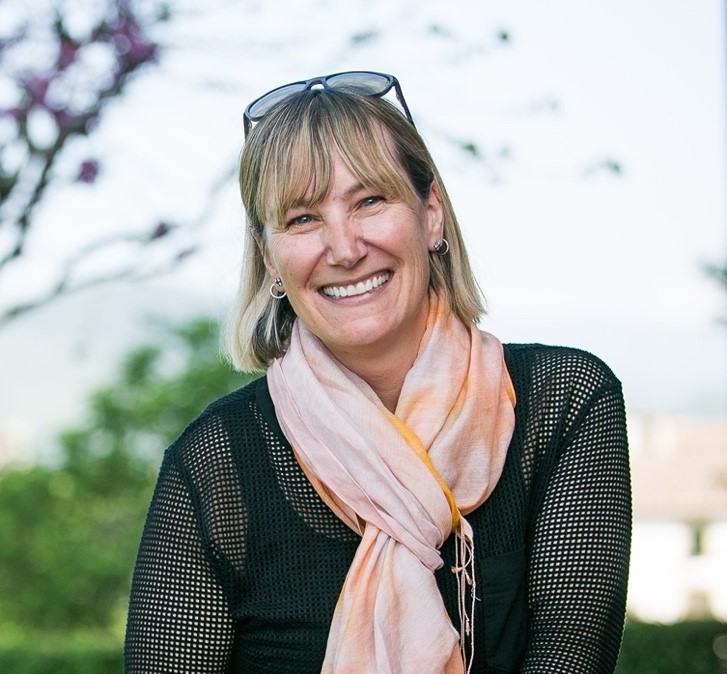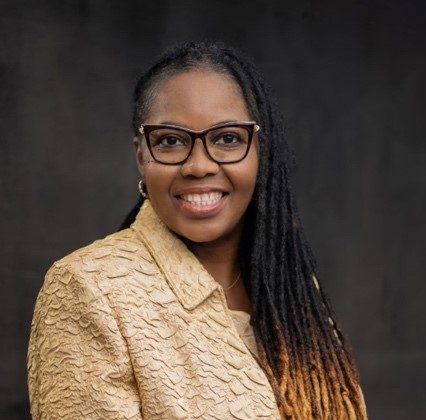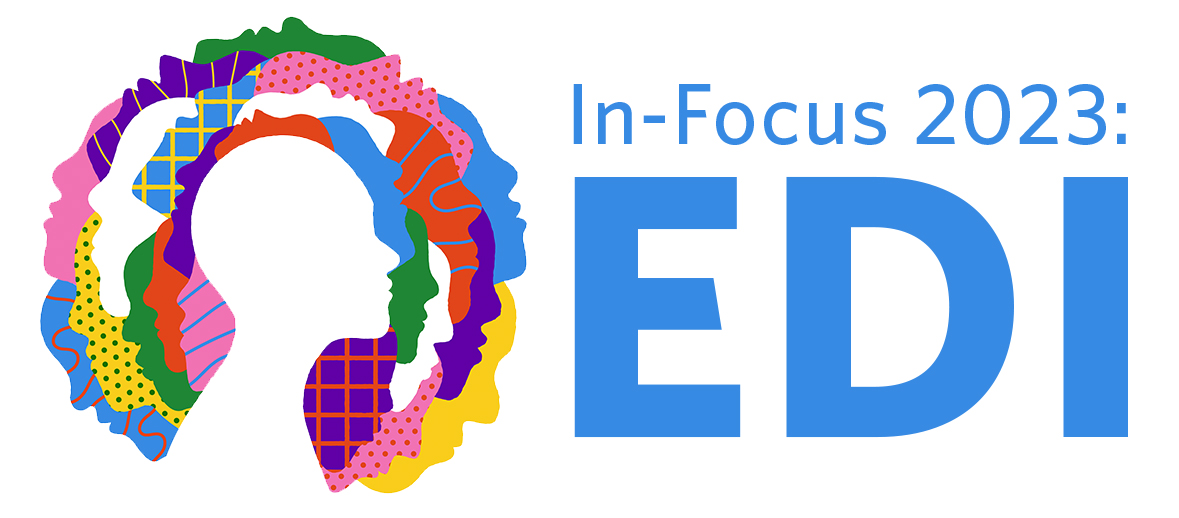
Tuesday, February 29 | 12:00PM – 1:00PM
Panelists

Jennifer Jenson, PhD, Professor, LLED
Dr. Jennifer Jenson (Ph.D. Simon Fraser University), is a Professor of Digital Languages, Literacies & Cultures in the Department of Language and Literacy Education, Faculty of Education, University of British Columbia. Prior to coming to UBC (January 2019), Dr. Jenson spent 18 years at York University in Toronto, Ontario, Canada, where she was Director of the Institute for Research on Digital Learning. Dr. Jenson is co-editor of Loading: The Journal of the Canadian Game Studies Association and a past, long serving President of the Canadian Game Studies Association. She has published widely on education, technology, gender, design and development of digital games, and technology policies and policy practices in K-12 schooling. She has considerable experience working on and with teachers in relation to technology, pedagogy and curriculum, and has also worked with school boards, colleges, and technology companies to support the integration and implantation of technologies in the K-12 sector and post-secondary sectors. Currently, she is the Principal Investigator of an international SSHRC Partnership Funded Project, “Re-Figuring Innovation in Games”, which seeks to interrupt and re-figure the hostile, misogynistic cultures of game making and play.

Joann Anokwuru, PhD, Curriculum and Pedagogy
Joann Anokwuru (She, Her) is a special/inclusive educator, advocate, and author. She holds a B.Ed. and M.Ed. in Special education from the University of Ibadan, Nigeria and an M.Ed. in Curriculum and Pedagogy, Leadership, and Administration from the University of British Columbia. An Advanced Diploma, Inclusive education, Queens University, Belfast, and a PhD, Curriculum Studies, UBC. Joann is a Certified Educational Assessor with Real Training UK and a member of the British Society of Psychologists BPS, UK. With over 28 years of teaching experience as a special educator, Joann wants to see school systems where people with disabilities are given access to learning, sharing and being. Joann is also the coordinator and teacher for Gateway to Adulthood, a Learning district program, Vancouver School Board. Joann’s PhD research focused on utilizing ecological narrative to bring forth the voices of young adults with disabilities, their families, special educators, and policymakers advocating for the Nigerian educational system to be more inclusive. Joann is married to Alexander Anokwuru and mother to two children, Asher and Alexandra Anokwuru.
Facilitators
Jamilee Baroud, Curriculum and Evaluation Consultant, ETS
Amir Doroudian, Learning Designer, ETS
Summary
Estimated reading time: 10 minutes
In this interactive Viewpoints session “The ‘universal’ in UDL”, we discussed the critical barriers related to universality in learning and how UDL can more explicitly address educational injustices and barriers to learning related to equity, diversity, and accessibility. Our panelists, Jennifer Jenson, PhD, professor, LLED, and Joann Anokwuru, PhD, Curriculum Studies provided context to the articles listed below and shared their unique perspectives, questions, ideas and concerns.
Opening remarks
Dr. Joann Anokwuru
Dr. Joann Anokwuru began the conversation by discussing her experience teaching in Nigeria from the late 1980s to 1990s and pursuing an intervention to support the visually impaired to interact with sighted people. She highlighted educational improvements since the 90s such as speech-to-text apps, Sustainable Development Goals (SDGs), and equity and inclusivity initiatives. She argued that the “universal” in UDL signifies a safe space where everyone has access to the same learning. Like a pedestrian bridge that has ramps instead of stairs – a wheelchair user can access it, and so can someone with a shopping cart or a stroller. She closed by offering her definition and understanding of the Universal in UDL:
“The universal is a safe space. It asks the question, how can all of us have access to learning and feel safe, welcome, and accepted? Whatever we are teaching, whatever structure we are putting up, whatever resources we are planning, we need to consider how to make it safe. And I emphasize the word ‘safe’ because everyone should feel welcome to access it.”
Dr. Jennifer Jenson
Dr. Jennifer Jenson emphasized that UDL is not an empirical fact or a theory but is, “more of a concept rooted in disability studies attempting to support diverse learning needs, as well as other needs for folks who are disabled or not neurotypical in the world.” The remainder of her discussion engaged 5 different aspects of UDL and how she views it given the information currently available. These thinking points include:
- The appeal to universalism is antithetical to decolonization
- UDL is not supported by empirical evidence
- UDL shares features with the debunked concept of learning styles
- After 30 years of its emergence, UDL is not yet empirically proven to be an effective approach to learning
- There is no proof that education has been improved by universal frameworks
Discussion themes
Dr. Jenson reminded us that, like many institutions in higher education, as well as the government of Canada and the province of British Columbia, we are committed to decolonization and making meaningful, appropriate, and careful work in that direction. The appeal to universalism, however, regardless of its form or intention is antithetical to the work of decolonization because the universal can appeal to higher forms of art, architecture, religion, and literature, and these have long been undone by the postmodern turn to specificities and small “t” truths. She argued that in its posturing towards the universal, UDL promises much more than it can deliver. And in so doing, it leaves behind the very important population it seeks to support.
In opposition, Dr. Anokwuru explained how pre-colonial Africa in the 19th century was characterized by inclusivity:
“There was no gender segregation and no consideration for disability. Everybody learned the same thing. It was the colonizers who introduced segregated forms of learning and disability school, and then we inherited this form of education. Speaking of designing lessons, I'm just going to voice out something my daughter said, years back. She said ‘Mommy, so many topics we talk about in our classes are disconnected from my lived experience. They forget that this is me being black in this space.’”
Dr. Jenson pointed out that UDL is not a proven theory or even a hypothesis, but rather a concept. Moreover, there is a lack of evidence supporting its effectiveness. She drew a parallel between UDL and the notion of learning styles, both of which share a similar lack of empirical support. She went on to present a comparison between UDL and learning styles:
“The concept of learning styles is debunked, and yet it is so entrenched in teacher education. We do not have different learning styles. The concept of learning styles is connected to the ways in which we are thinking about UDL. It is a misconception that we have not yet eradicated. Learning styles research never yield consistent and reliable improvement in student learning, and UDL is no different. Second, both UDL and learning styles are complex concepts that tried to account for all learners, yet that complexity renders them operationally difficult to empirically test. The complexity of UDL leaves a Gordian Knot that researchers have not yet untangled in studies of the framework’s effectiveness. Third, both learning styles and UDL focus on teaching and instructional strategies that hopefully appeal to all learners; that is, the universal learner, but learners don’t always know what works best for them, nor is there any evidence that this is a more effective approach. Four, both learning styles and UDL have an overreliance on unproven neuroscientific approaches. So, like learning styles, UDL relies on hypothesis, rather than facts.”
Dr. Jenson stated that although UDL has existed since the late 1990s, empirical evidence of its effectiveness is absent from the literature:
“Calling for some more research isn’t really going to change the fact that while it might at one time had been an interesting concept, UDL remains at best an unproven hypothesis, and at worst, a template that reduces complexity, standardizes cognitive practices, and overlooks both people and pedagogies.”
She then explained that UDL research has been inconclusive because UDL is too complex, and it is not easy to replicate studies. She explained:
“One reason the research is lagging behind is that UDL is so complex that it is difficult to tease out how you get from point A to point B. So, you do all these things, and at the end of the day you don’t know which one landed for the students. And the students themselves might not even know. And then there is the problem of replicability. So, I think we are talking about a complex landscape of a lot of ecological things that come together to make a learning experience possible. I think it is so complex on the first hand, and, on the second hand, we haven’t decided whether we are talking about pedagogy or the learners. And where is the intersection?”
Dr. Jenson also mentioned how the principles and practices embedded in universal frameworks have failed to significantly improve education since UDL’s conception in the 1990s. She argued:
“Asking learners what they want and need when they might not know because they are learners is not the universal approach to take. Instead, giving UDL best intentions, going forward, I hope we see it not as a universal framework that somehow solves all the pedagogical design problems in education, but instead as a tool to think through those problems and apply them to a very specific set of learners and or issues based on evidence, whether this be empirical or anecdotal.”
Dr. Anokwuru then referred to some of her experiences as an educator in the UK, Dubai, and Nigeria to highlight that most of the technologies used in Canadian education might not be available in developing countries, and therefore, learners might not have access to multiple means of representation and expression the same way that learners do in Canada. Dr. Anokwuru explained:
“Researchers dispute UDL, but let those researchers go to certain developing countries and conduct their research there. Here in Canada, a learner who is not able to write is given the opportunity to say her answer verbally and be graded. But I've come from a place where if you're not writing, you're a failure. If you're not calculating math, you are a failure. I learned how to do calculus without a calculator. Calculator was not allowed in our classroom. The education system in Nigeria does not offer multiple means of representation and fails to meet many students’ needs.”
Dr. Anokwuru argued that the context in which UDL research is conducted is significant. She claimed that it would be compelling to perform a systematic comparison of research on UDL based on context to determine if the results reveal a significant difference.
Dr. Anokwuru closed the conversation by restating that UDL is about planning in advance and creating a safe space for all learners where everyone – neurotypical learners and learners with disabilities – are represented and have a chance to engage with the content, other learners, and the teacher.
A few resources were also made available prior to the session.
Rose, D. H. (2022). Cracks in the foundation: Personal reflections on the past and future of the UDL guidelines. CAST Publications.
Rose (2022) acknowledges that the principles and framework of UDL have not adequately addressed injustices and barriers. In particular, Rose highlights the gap between ability, which originally dominated UDL guidelines, and its intersection with wider networks of inclusion and equity including language, skin colour, ethnicity, gender, and sexual orientation. Rose argues that future iterations of UDL would benefit from the intentional and intersectional embeddedness of identity, ability, community, and institutions to encourage more universally applicable, relevant, and effective guidelines that attend to diverse student experiences. Future revisions of UDL will implement recommendations that ideally diversify and deepen the positive impact of the UDL guidelines, and address barriers related to racism, genderism, ethnocentrism, and ableism.
Murphy, M. P. (2021). Belief without evidence? A policy research note on Universal Design for Learning. Policy Futures in Education, 19(1), 7 – 12.
Murphy (2021) claims that the policy changes recommended by UDL are based on anecdotes and testimonials and lack evidence through scientific data and research, and the research that has been conducted focuses on instructors’ practices rather than student perspectives. A second critique is that UDL embraces theories of learning styles – a disproven theory – through the promotion of self-selection. Murphy also critiques UDL for its promotion of screen-based reading despite research that demonstrates the superiority of paper for reading comprehension.
Boysen, G. (2021). Lessons (not) learned: The troubling similarities between learning styles and universal design for learning. Scholarship in Teaching and Learning in Psychology. DOI:10.1037/stl0000280.
Boysen (2021) claims that the premise of UDL has the same central idea as learning styles, a now discredited concept. UDL also lacks science-based evidence to prove that implementation increases student learning, which makes it difficult to assess learning outcomes and effectiveness. In other words, the assumption that student choice increases learning is untested. There is also a lack of clarity in regard to UDL implementation and outcomes. Finally, UDL is reliant on neuroscientific overgeneralizations and instead should justify its effectiveness by utilizing cognitive science. Boysen is quick to note that the use of UDL to increase access for students with disabilities is not under scrutiny, rather that it should be examined as an educational framework more critically.
Snow, K. (2016). Assume the best: Revolutionary common sense. Disability is Natural.
Equity, Diversity, and Inclusion (EDI)

This event is a part of our Equity, Diversity, and Inclusion (EDI) initiative, which aims to raise awareness of EDI topics particularly accessibility in in-person, online and hybrid courses in line with the coming new provincial accessibility guidelines. Learn more about our related events and resources.
We invite readers to continue the discussion in the comment area below. Share your thoughts and experiences in relation to classroom culture and community in online learning.